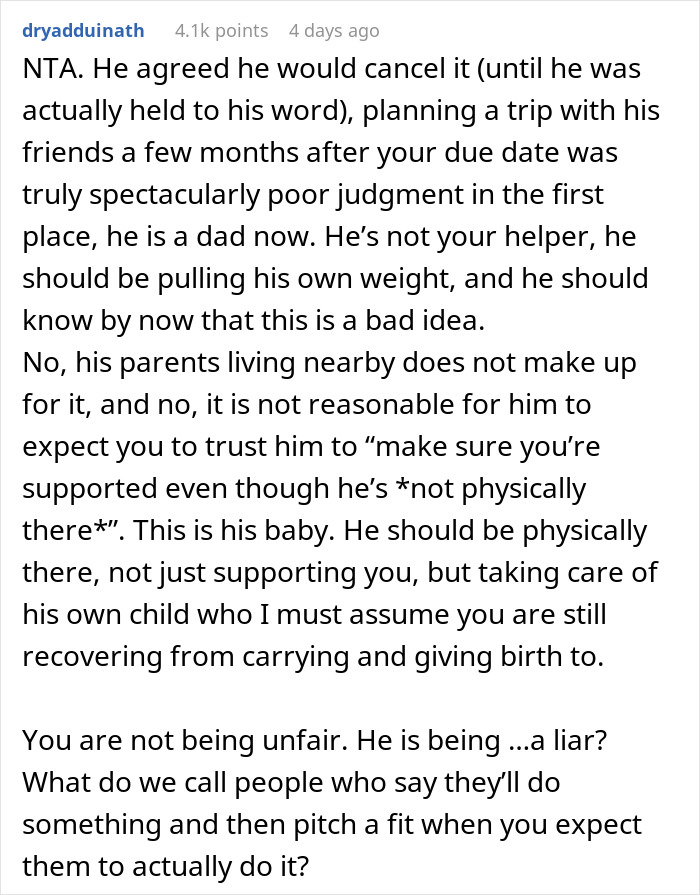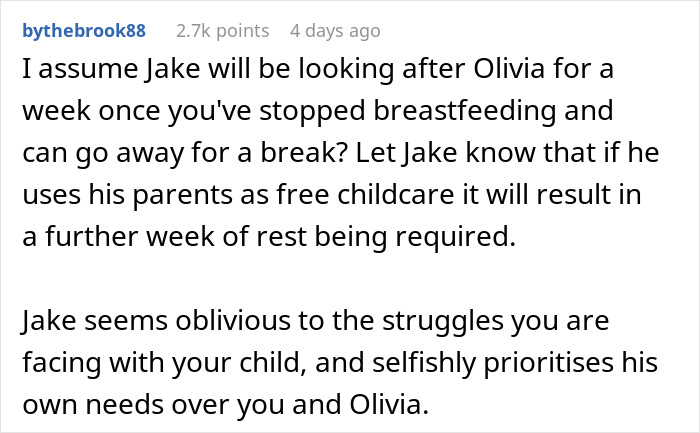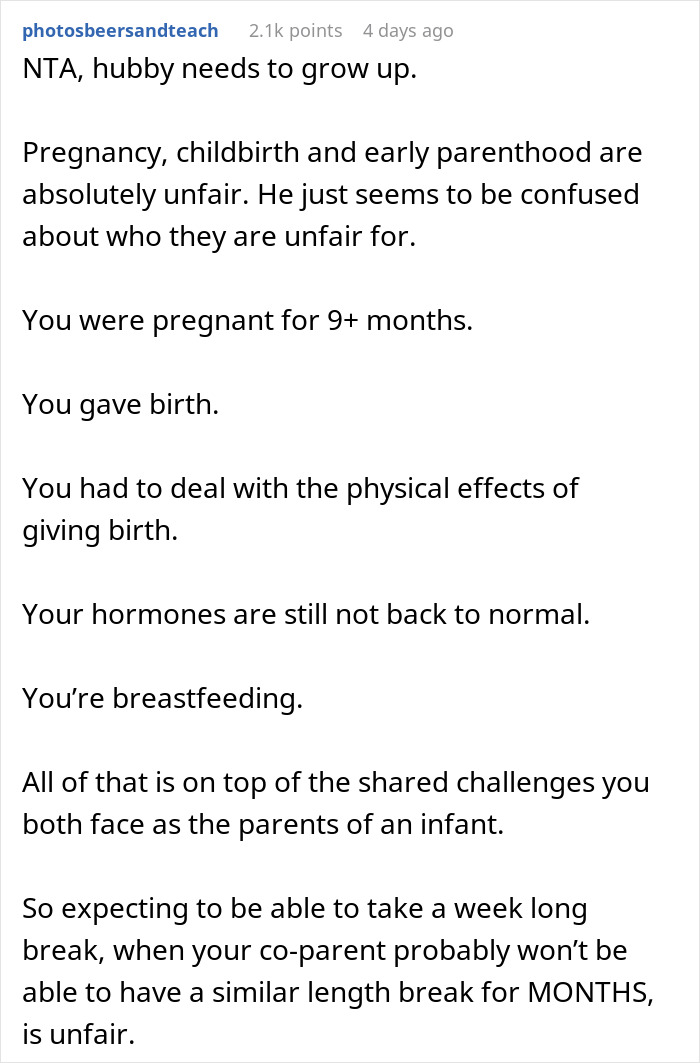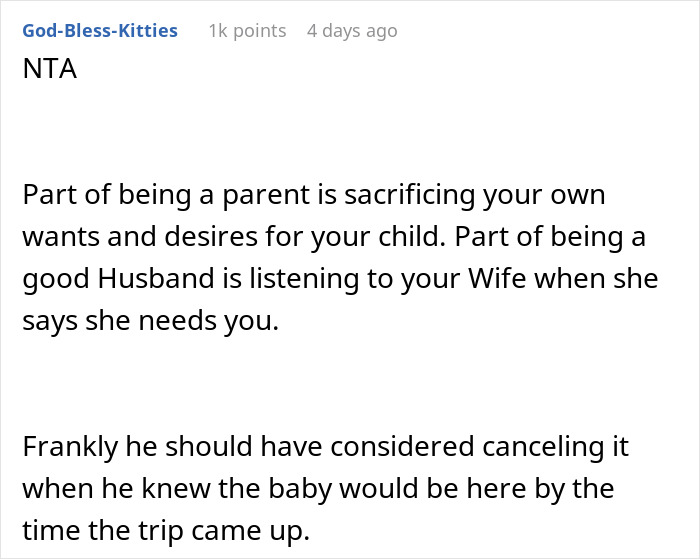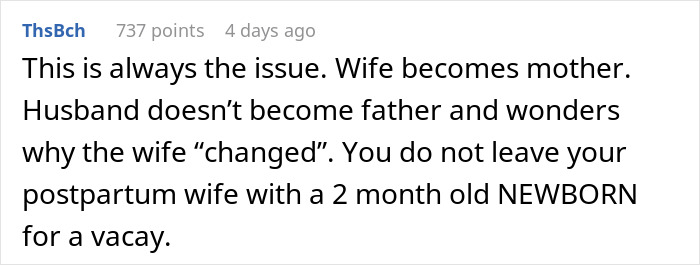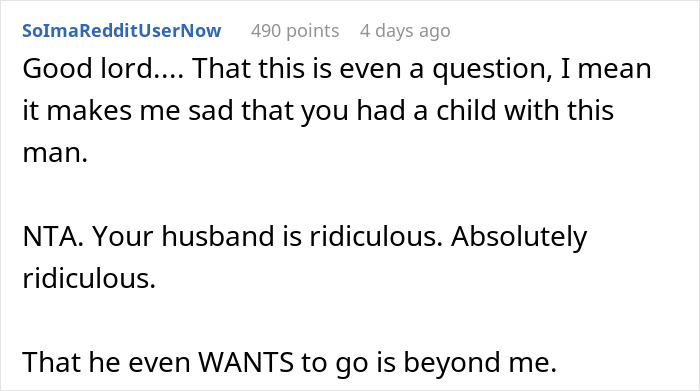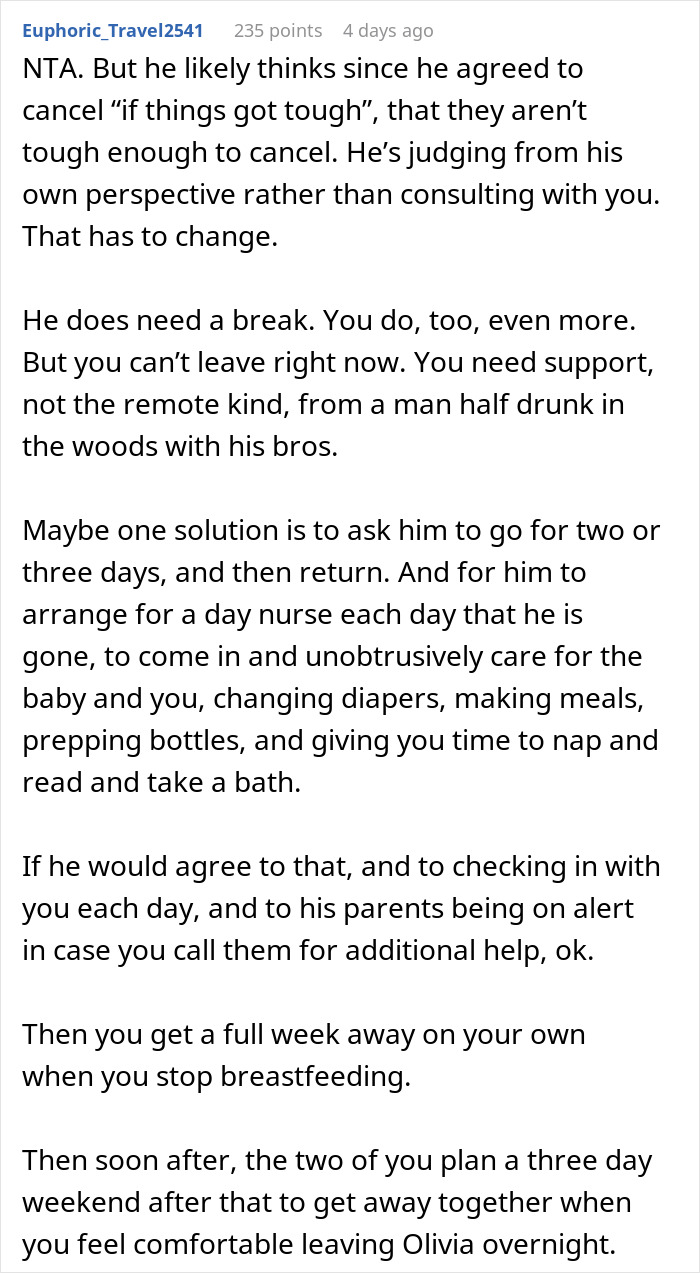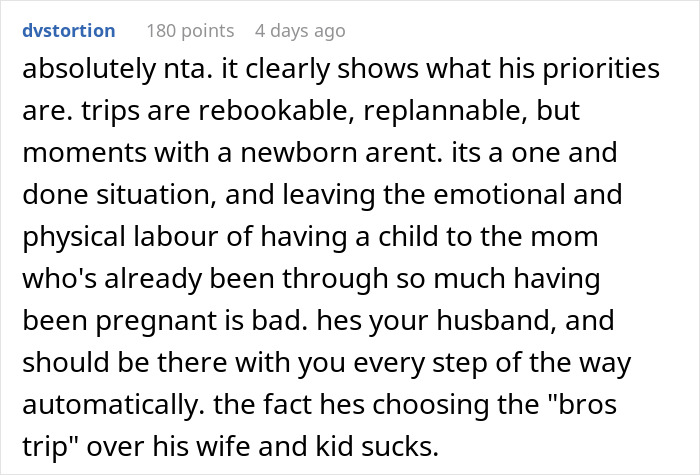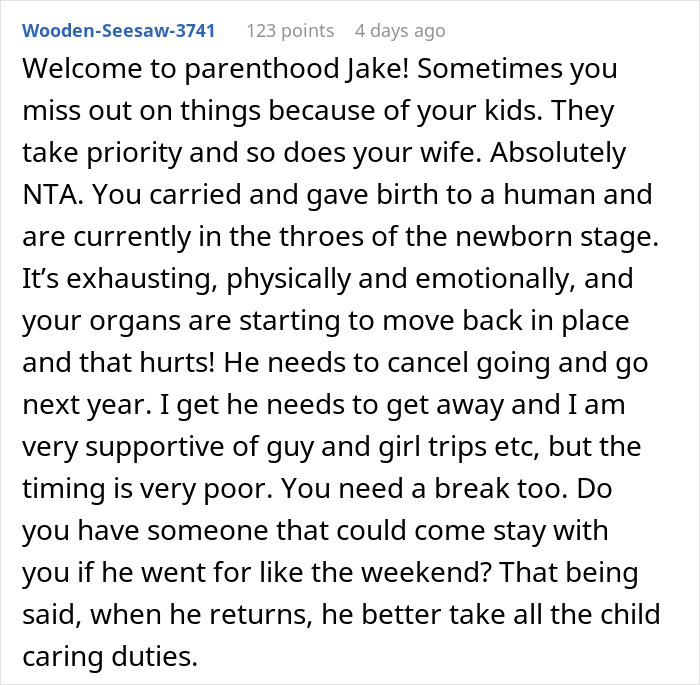Becoming a new parent can be a tough transition. No matter how many books parents-to-be read or how much advice they receive, nothing can fully prepare them for welcoming a new person into the world. But having a supportive partner who lightens the load and eases the postnatal anxiety definitely helps.
Unfortunately for redditor Foreign-Ostrich8937, all her husband could think about after she gave birth was how he was going to take a week off and relax with his ‘bros’. Not comfortable with being left alone with their newborn, she became apprehensive and asked to cancel the trip. This resulted in an emotional rollercoaster that, *spoiler alert,* ended surprisingly happily.
Scroll down to find the full story and a conversation with certified birth and postpartum doula, educator, and author Jill Magoffin, who kindly agreed to tell us more about the transition into parenthood.
Nothing can fully prepare a person for parenthood

Image credits: Anna Shvets / pexels (not the actual photo)
But having a supportive partner helps, which this woman found out she doesn’t have
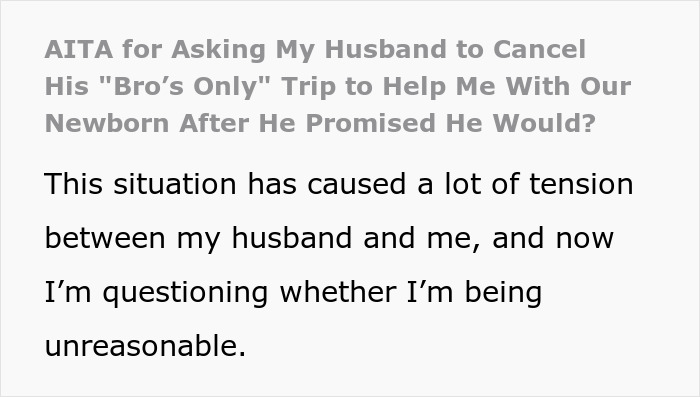
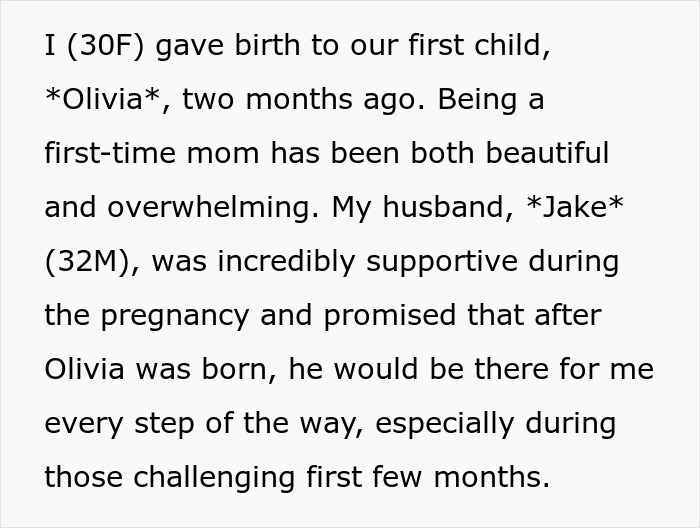

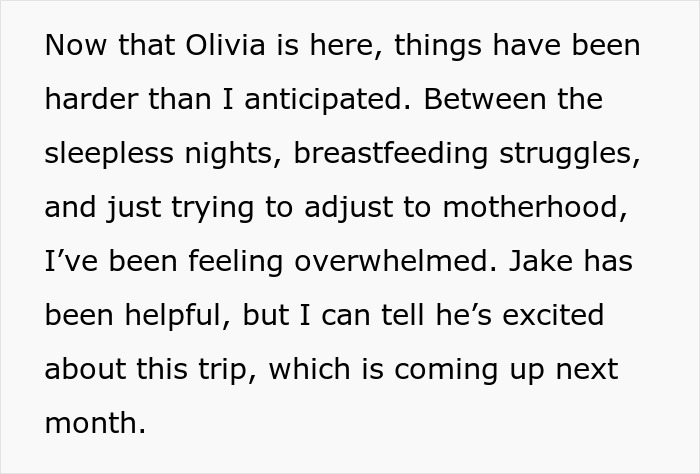
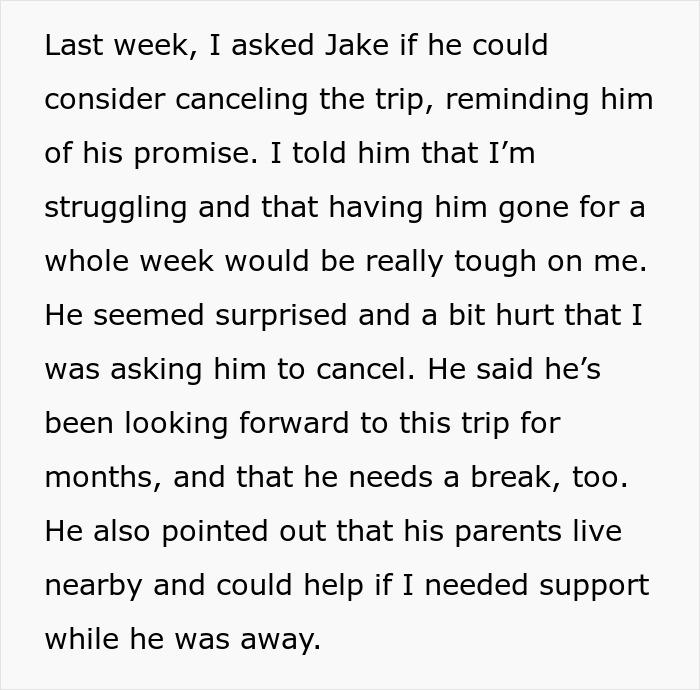
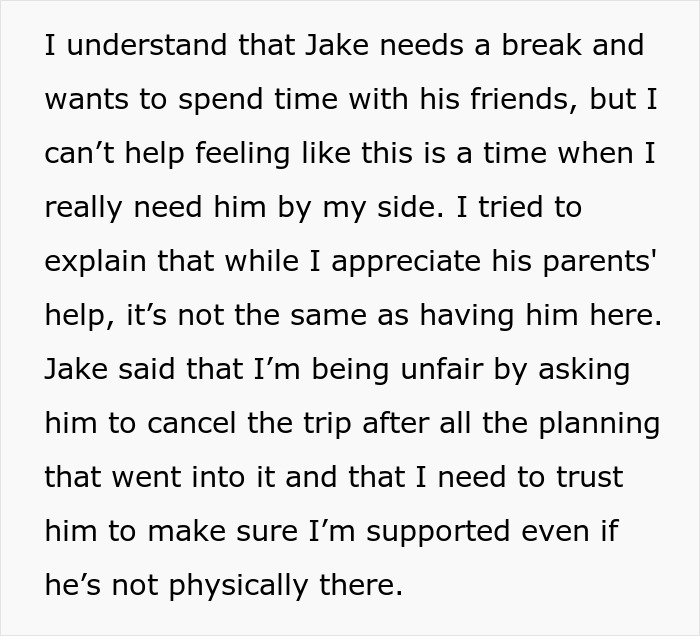
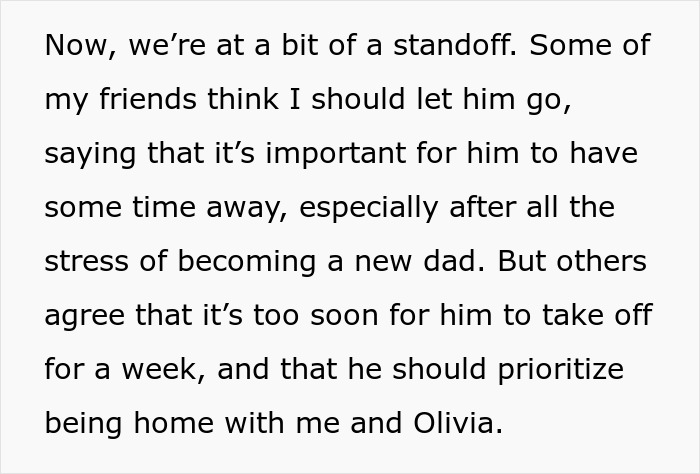


Image credits: ImageSourceCur / envato (not the actual photo)
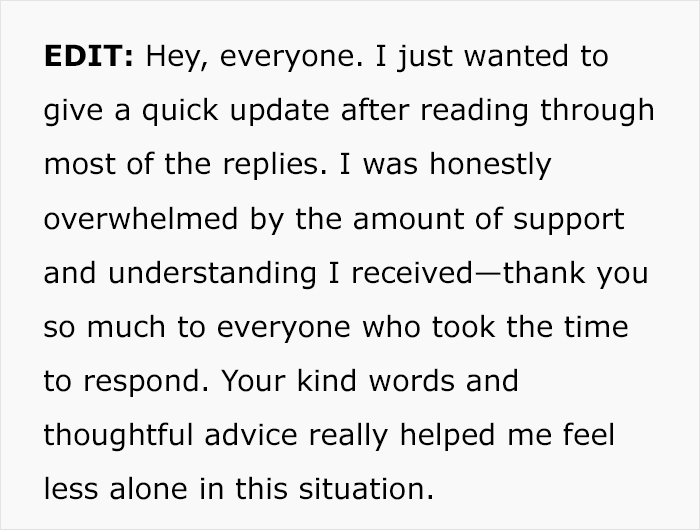
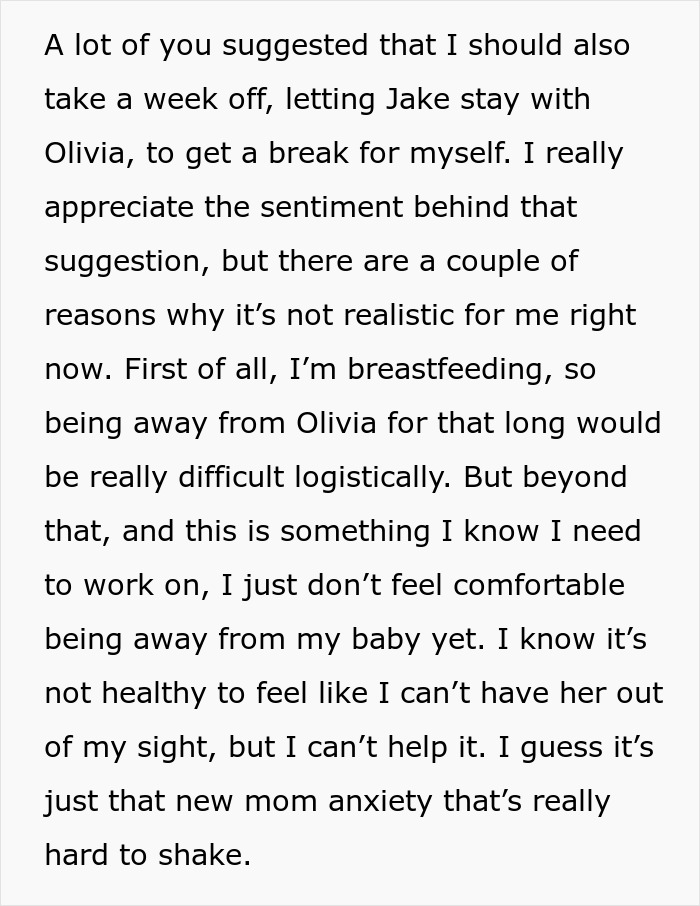
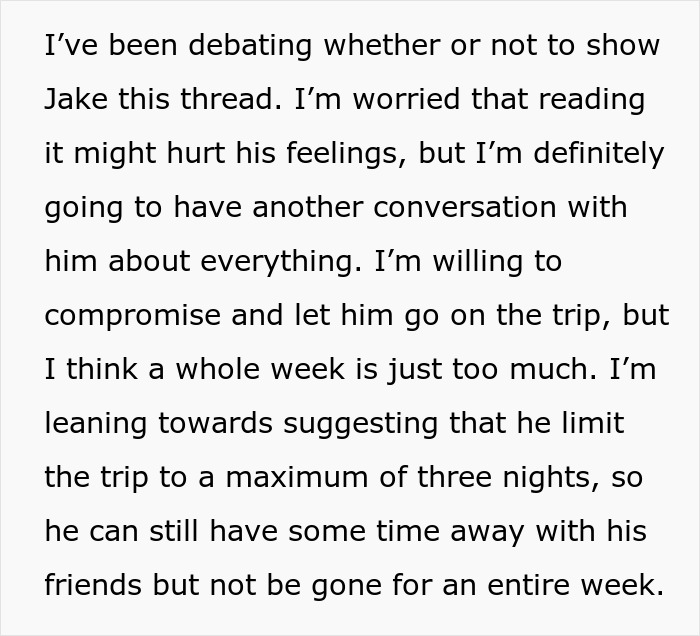
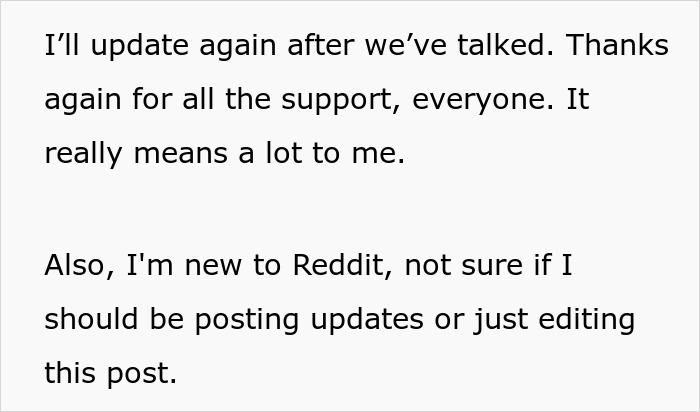

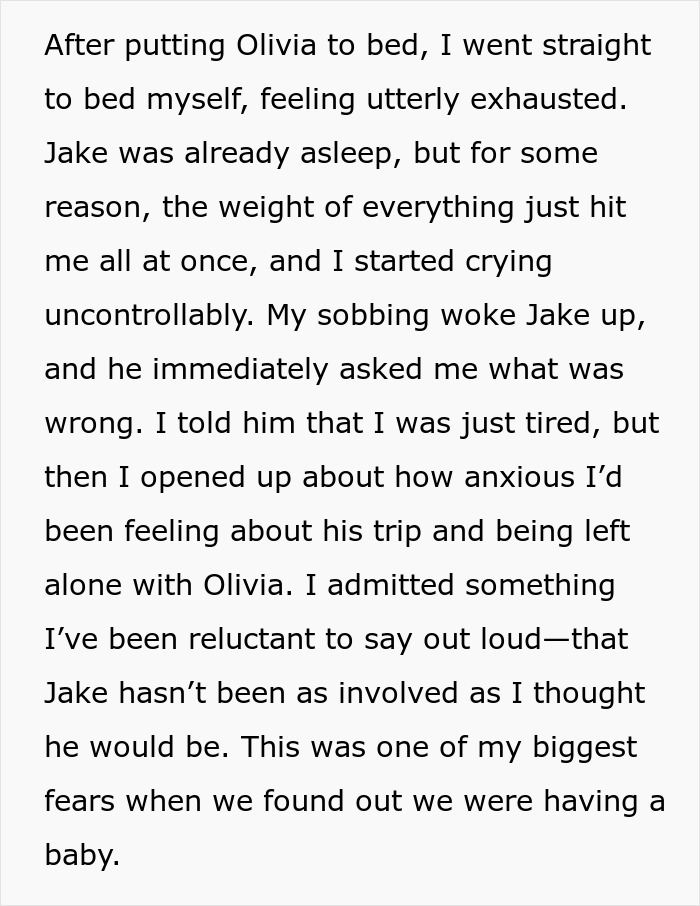

Image credits: klavdiyav / envato (not the actual photo)
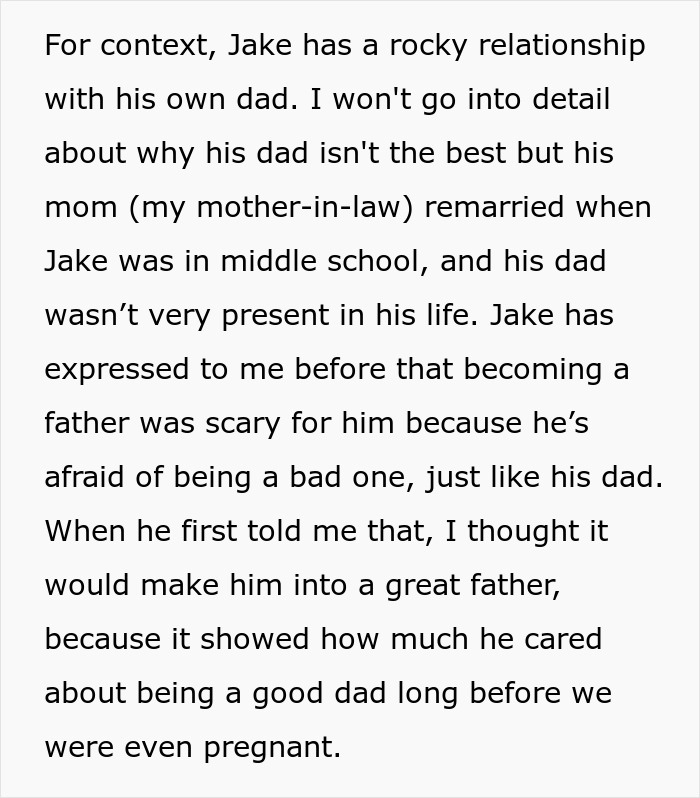
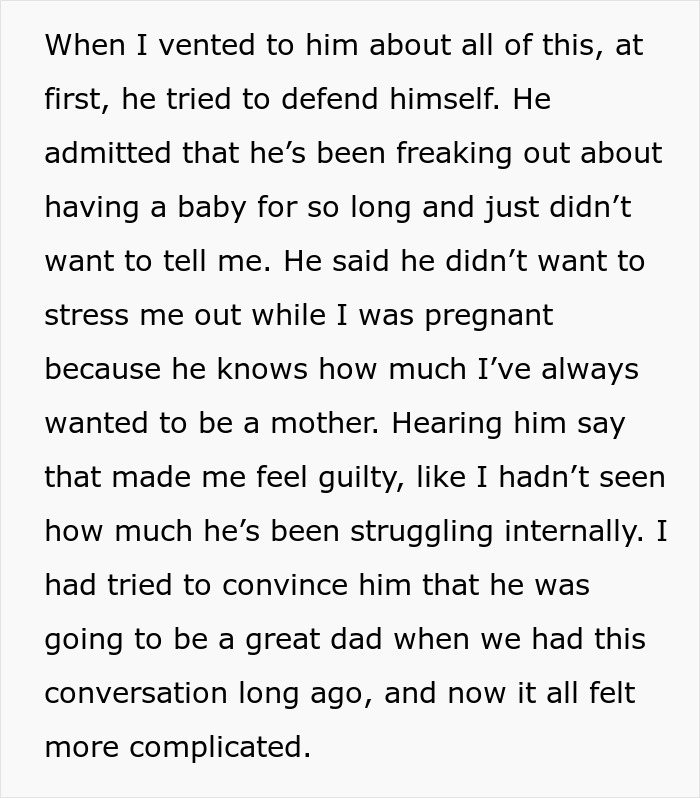
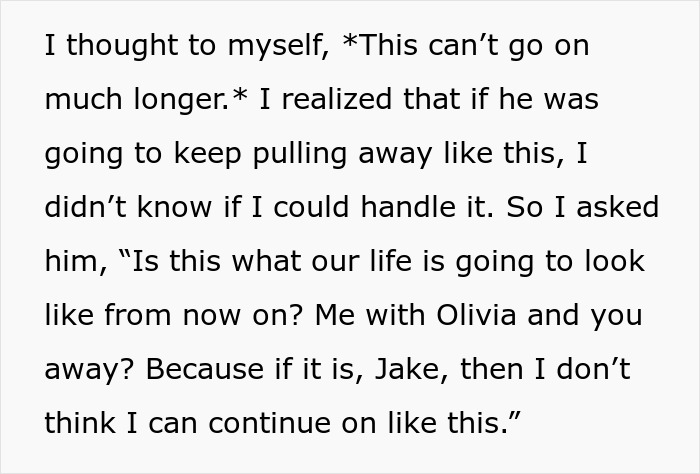
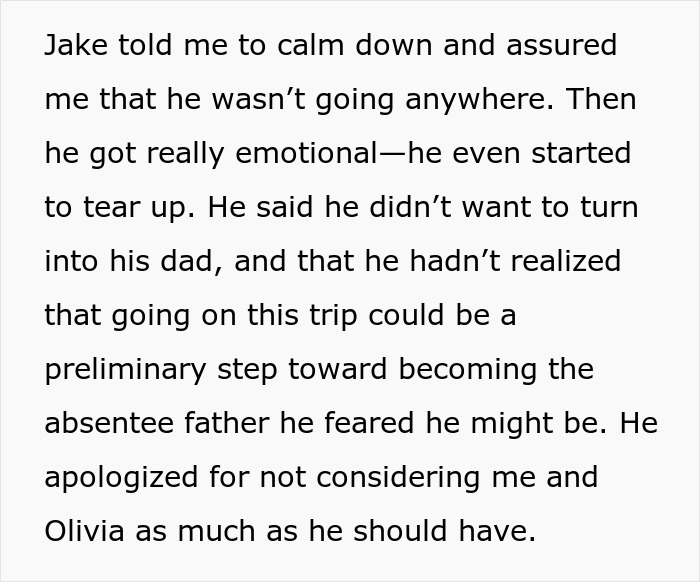
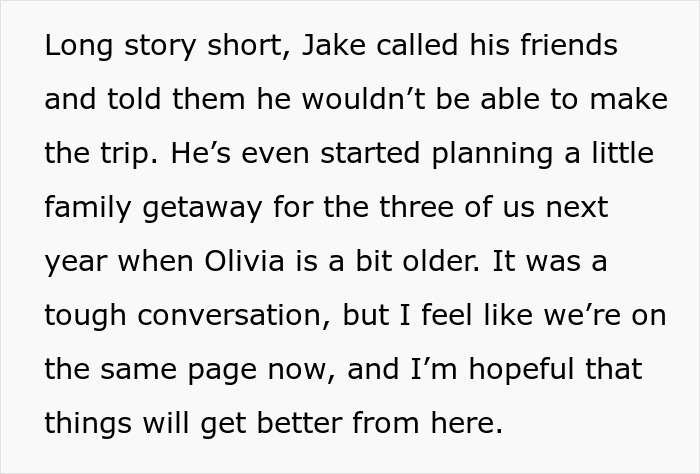
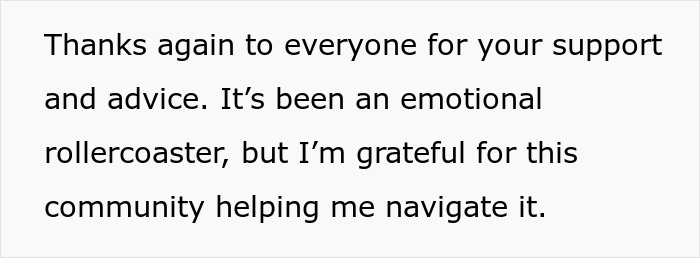
Image credits: Foreign-Ostrich8937
The mental health struggles that many women go through after delivering a baby are called the “postpartum mental health spectrum”

Image credits: Olya Afanasyeva / pexels (not the actual photo)
“Becoming a new parent is a beautiful adventure, but let’s be real—it can also be incredibly challenging, especially for women,” says birth and postpartum doula, educator, and author Jill Magoffin to Bored Panda.
“After giving birth, the physical recovery can be daunting. Whether it’s the soreness from a vaginal delivery or the healing process after a C-section, your body has just been through a major marathon. On top of that, many new moms face the pressures of breastfeeding, which can come with its own set of hurdles, like figuring out latching or dealing with supply issues.”
However, the challenges don’t stop there. “Hormonal shifts can lead to mood swings, anxiety, or even postpartum depression, making it tough to navigate this new world,” notes Magoffin.
“Adding to this complexity is the pervasive “bounce-back culture” that’s amplified by social media,” she says. “It often feels like there’s an unspoken expectation for new moms to return to their pre-baby bodies almost overnight, thanks to the perfectly curated images of celebrities who seem to do it effortlessly. This can create feelings of inadequacy and pressure that are simply unfair. The reality is that every body is unique, and it’s completely normal to take time to adjust after bringing a new life into the world.”
The mental health struggles that many women go through after delivering a baby are collectively called the “postpartum mental health spectrum.” The term is used to describe the range of mood disorders that women go through after childbirth due to drastic hormonal changes, genetic factors, stress, and trauma.
This spectrum is divided into three categories, with the mildest condition being the baby blues, which affects 50% to 75% of women. New moms who experience this mood disorder go through emotion swings, anxiety, sadness, irritability, and difficulty sleeping. These symptoms usually appear within the first few days after delivery and continue for about two weeks.
A more severe and persistent condition is postpartum depression. It affects approximately 15% of new mothers and can appear within the first year after childbirth. Symptoms may include a depressed mood, insomnia, guilt, hopelessness, and a loss of interest in activities. This disorder can severely interfere with taking care of themselves and the baby.
The rarest and most extreme condition on the spectrum is postpartum psychosis. It appears in one in 1,000 women and can cause hallucinations, delusions, confusion, paranoia, and suicidal or homicidal impulses. Such a disorder already requires medical and psychiatric care.
It’s crucial that partners support new moms

Image credits: Till Daling / pexels (not the actual photo)
It’s absolutely evident that the postpartum period can be challenging for new moms. Therefore, Magoffin says that it’s the perfect time for partners to step up and be a rock of support. “One of the best ways to help is by sharing the load. Dive into childcare duties—whether it’s changing diapers, helping with feedings, or tackling household chores. Your involvement can make a world of difference and help ease the stress that new moms often feel.”
She also adds that emotional support is just as crucial. “Sometimes, all a new mom needs is someone to listen and validate her feelings. Encourage her to take breaks and prioritize self-care—whether that’s sneaking in a long shower, enjoying a quiet cup of coffee, or simply resting when the baby sleeps. And if you notice she’s struggling, gently encourage her to seek professional help. Remember, it’s perfectly okay to ask for support!”
While being caught up in a whirlwind of baby care, Magoffin encourages new parents not to forget about their relationship. “Maintaining that connection is vital! Schedule regular time for each other, even if it’s just a few minutes each day to catch up and share a laugh. Date nights might look a little different now, but they can still happen! Whether it’s ordering takeout and binge-watching a favorite show or enjoying a quiet evening together after the baby is asleep, those moments of connection are invaluable.”
Social life shouldn’t be forgotten either, Magoffin notes. “It’s common to feel isolated in those early days, so reach out to family and friends for help. They’ll likely be thrilled to spend time with your little one and give you a much-needed break. Joining parenting groups or online communities can also provide a sense of camaraderie and support, making you feel less alone in this journey.”
When in doubt, remember that balance is key. “Keep the lines of communication open with your partner about your needs and feelings. Remember, this journey is a team effort, and together, you can navigate the beautiful chaos of parenthood while nurturing your relationship.
By embracing the challenges and supporting each other, new parents can create a loving environment for their baby while also keeping their relationship strong and vibrant. Parenthood is a journey filled with ups and downs, but with love and teamwork, it can also be one of the most rewarding experiences of your life!” reassures certified doula.
The commenters were on the new mom’s side

